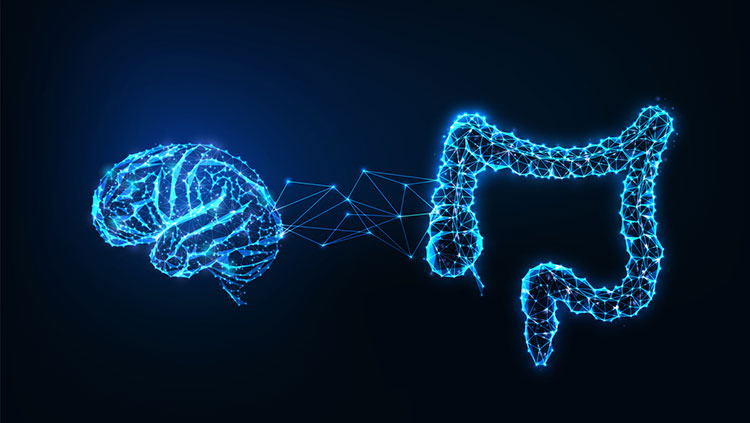Physical Exercise Beefs Up the Brain
- Published28 Aug 2013
- Reviewed28 Aug 2013
- Authors Jen Uscher, Jennifer Carr
- Source BrainFacts/SfN
Boost your brainpower. Train your brain. These days it's hard not to become distracted by ads for the latest program that promises to help you learn faster and hold onto memories longer.
Run for your life! Regular aerobic exercise has been associated with increased cognitive abilities, including benefits to learning and memory.
But, even as scientists continue to explore the effects of various brain-training programs, a wealth of evidence makes one thing quite clear: physical exercise benefits the brain. Over a decade of research in animals and people shows that engaging in regular aerobic activity leads to changes in the brain associated with improved cognition.
Exercise increases birth of new nerve cells
One of the earliest clues about exercise-induced changes in the brain came in the late 1990s, when a group of scientists decided to compare the brains of mice given unlimited access to an exercise wheel (runners) to those of mice without exercise wheels in their cages (non-runners).
Compared with the non-runners, the researchers discovered that physically fit mice had double the number of new nerve cells in a region of the hippocampus — an area of the brain involved in learning and memory. When the scientists later taught the runners and non-runners to navigate a water maze, they found the runners learned the task faster than the non-runners and took a more direct route to the maze end.
Fred Gage, a neuroscientist at the Salk Institute for Biological Studies who led both studies, explained that the researchers were "very surprised" to find that the physical activity of a mouse "affects the number of new brain cells and impacts its ability to remember things." At the time, scientists largely agreed the brain affects behavior. Gage's studies suggested the opposite was also true.
Exercising monkeys learn faster
Rodents are avid runners. In fact, with access to the exercise wheel, they will run for hours, racking up several miles each day. Since most people don't put in the hours or mileage running that rodents do, some scientists began to ask: Are long hours of aerobic activity required to see the positive effects of exercise on the brain, or might a more moderate exercise routine do the trick?
To test whether moderate exercise changes the brain, Judy Cameron, a neuroscientist at the University of Pittsburgh, trained a group of middle-aged and older monkeys to run on a treadmill for one hour each day, five days per week for five months — a running regimen similar to that recommended for average, middle-aged adults. As the one group of monkeys ran, a second group of monkeys sat on the treadmills. Over the course of the study the researchers evaluated the monkeys' ability to learn new things.
Regardless of the age of the monkeys, Cameron's group discovered that the monkeys on the running regimen learned new things twice as fast as the sedentary animals.
"We were excited to see that the same moderate level of exercise that is recommended for middle-aged people is able to improve how the brain works in monkeys — increasing alertness, attentiveness, and leading to faster learning," Cameron says.
According to Cameron, it's possible that the cognitive improvements associated with exercise are the result of increased blood flow to the brain. The greater the blood flow, the faster oxygen and other important nutrients can reach nerve cells.
When Cameron's group compared the brains of the monkeys that ran to the brains of sedentary animals they found that the older runners developed more brain blood vessels. However, when the scientists examined the brains of older runners that stopped exercising for three months, they found that the older runners had no more brain blood vessels than their sedentary counterparts.
"These findings suggest that it's important to keep exercising to retain the benefits of exercise," Cameron says.
Brain benefits across lifespan
Studies of animals and people show an association between physical activity and improved cognitive performance across the lifespan, says Art Kramer, who studies how fitness can change the aging brain at the University of Illinois at Urbana-Champaign. According to recent human studies, even people who hold off on regular aerobic activity until later in life may still be able to gain from exercise in their senior years.
As people get older, it is natural for some regions of the brain to begin to shrink. For instance, studies show the hippocampus shrinks one to two percent annually in people without dementia — a loss that is associated with an increased risk for developing cognitive difficulties. Curious about whether exercise could help slow or reverse these changes, Kramer and his colleagues recruited a group of healthy, sedentary adults from ages 55 to 80 to participate in a yearlong exercise program.
These adults were divided into two teams — one spent their time walking for 40 minutes three days per week while the other performed a variety of strength and balance exercises during this time. At the start, middle, and completion of the study, the researchers used magnetic resonance imaging (MRI) to measure the volume of the hippocampus.
The size of the hippocampus increased by 2 percent on average in the adults that completed the walking regimen and memory improved. In contrast, the participants who completed a yearlong balance and strength training program experienced a 1 percent decrease in the volume of the hippocampus.
"These findings suggest that brain and cognitive health can benefit from very modest increases in exercise and physical activity," Kramer says. "It's never too late to reap the benefits of exercise."
CONTENT PROVIDED BY
BrainFacts/SfN
References
Colcombe SJ, Kramer AF, Erickson KI, Scalf P, McAuley E, et al. Cardiovascular fitness, cortical plasticity, and aging. Proceedings of the National Academy of Sciences USA. Mar 2; 101(9):3316-21 (2004).
Cotman C, Berchtold N, Christie L. Exercise builds brain health: key roles of growth factor cascades and inflammation. Trends in Neuroscience. 9: 464-72 (2007).
Eriksson P, Perfilieva E, Björk-Eriksson T, Alborn A, Nordborg C, et al. Neurogenesis in the adult human hippocampus. Nature Medicine. 4: 1313 – 1317 (1998).
Gómez-Pinilla F, Hillman C. The influence of exercise on cognitive abilities. Comprehensive Physiology. 3:403-428 (2013).
Haskell WL, Lee IM, Pate RR, Powell KE, Blair SN, et al. Physical activity and public health: updated recommendation for adults from the American College of Sports Medicine and the American Heart Association. Medicine and Science in Sports and Exercise. Aug;39(8):1423-34 (2007).
Pereira A, Huddleston D, Brickman A, Sosunov A, Hen R, et al. An in vivo correlate of exercise-induced neurogenesis in the adult dentate gyrus. Proceedings of the National Academy of Sciences. 13: 5638-5643 (2007).
Raz N, Lindenberger U, Rodrigue KM, Kennedy KM, Head D, et al. Regional brain changes in aging healthy adults: General trends, individual differences and modifiers. Cerebral Cortex 15:1676–1689 (2005).
Rhyu IJ, Bytheway JA, Kohler SJ, Lange H, Lee KJ, et al. Effects of aerobic exercise training on cognitive function and corticol vascularity in monkeys. Neuroscience. 4: 1239-1248 (2010).
van Praag H, Kempermann G, Gage F. Running increases cell proliferation and neurogenesis in the adult mouse dentate gyrus. Nature Neuroscience. 2: 266-270 (1999).
Voss M, Nagamatsu, L, Liu-Ambrose T, Kramer A. Exercise, brain, and cognition across the life span. Journal of Applied Physiology. 5: 1505-1513 (2011).



















